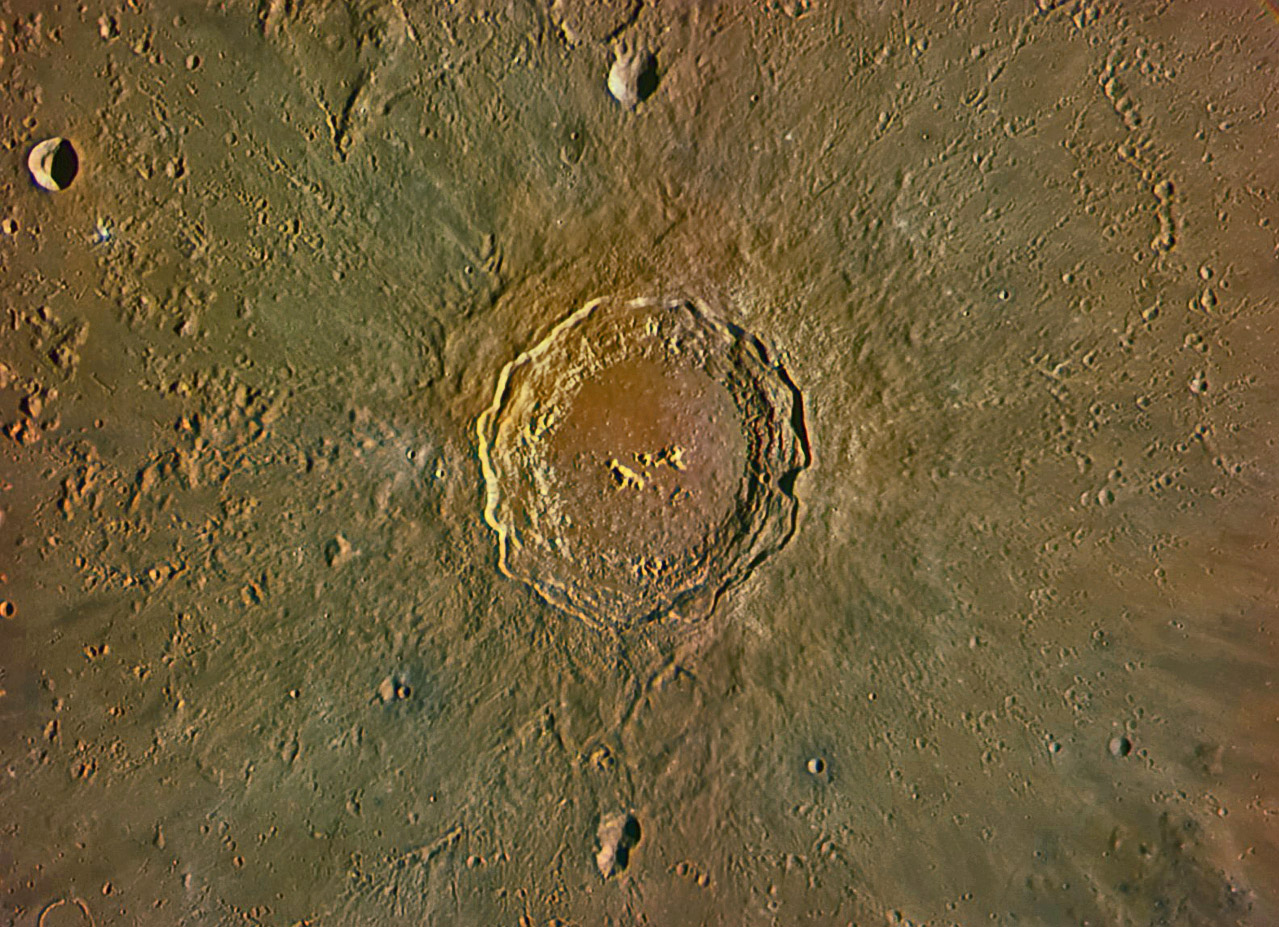May 27, 2014
Colorful Revelations

image by Stefan Buda, Australia
Copernicus is probably the most imaged feature on the Moon because it is always dramatic and has many stories to tell. Stefan noticed that one quadrant of the crater had a different colour, so I decided to have a closer look and produced a high resolution RGB image of the area. I'm not sure that the unusual character of Copernicus' floor had been fully appreciated until the Clementine multicolor mosaic revealed the pronounced red color of the northwest quadrant. This is depicted in Stefan's image as ochre, and it is interpreted to be impact melt. The melt also veneers the outer wall of the crater in the same northwest side, suggesting that Copernicus may have formed by an oblique impact, but the angle must have been relatively high for there is little abnormality in the shape or topography of the crater. It always seemed odd to me that 3/4 ths of the crater's floor was hilly and the impact melt covered area wasn't. But closeup views by LRO reveal that even the lumpy area includes impact melt. The QuickMap altimetry tool gave a result that surprised me - the northwest quadrant of the floor is 50-100 m lower than the rest of the floor. So the melt may not be thick and covering the rugged floor material - there is little in that quadrant. Perhaps a lower floor in the downrange direction happens in oblique impact craters but I am not aware that that is true. But a quick check of Tycho says it is for that crater also. The eastern side of Tycho's floor is the downrange direction, and it is 200 m deeper than most of the other sides, and it is where there the smoothest part of the impact melt deposit occurs. Maybe this is a new discovery (at least for me) about crater floors, impact melt and direction of impact.
Chuck Wood
Technical Details
May the 10th, 2014. 4 panel mosaic captured with a 16" Dall-Kirkham telescope and DMK21AU04 camera though Astrodon I-series RGB filters.
Related Links
21st Century Atlas chart 22.
Yesterday's LPOD: Growing Australe
Tomorrow's LPOD: Lgm
COMMENTS?
Register, Log in, and join in the comments.



